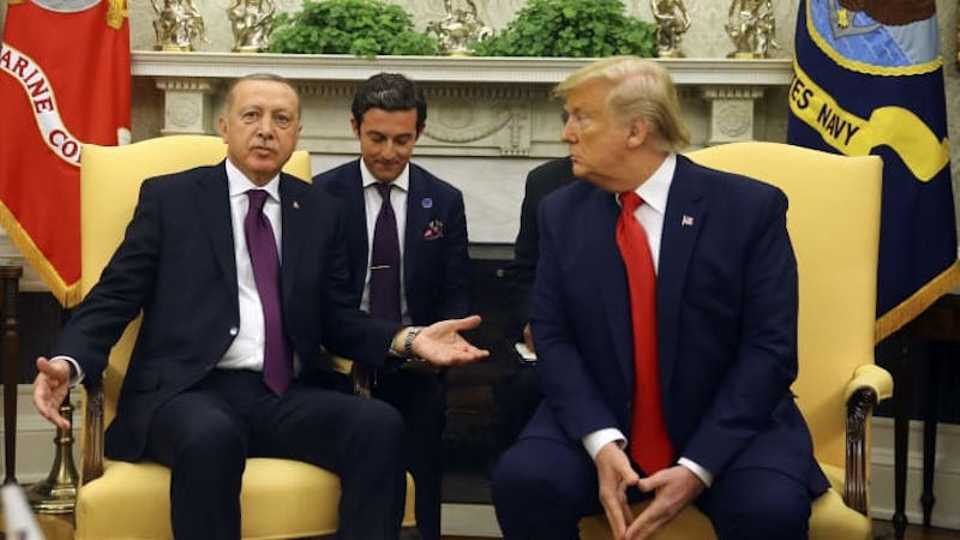On October 29, as Turkey celebrated the 96th anniversary of the founding of the Turkish Republic in Washington, the House of Representatives voted 405-11 in favour of the resolution to recognise the alleged killings of Armenians under the Ottoman Empire in 1915.
The resolution was not legally binding unless the Senate passes it.
On Wednesday 13 November, US Senator Lindsey Graham blocked the passage of the resolution which would officially recognise the so-called Armenian genocide. Graham’s objection came hours after he took part in a White House meeting with US President Donald Trump and his Turkish counterpart Recep Tayyip Erdogan alongside a group of Republican senators.

Graham objected to passing the resolution in the Senate, saying senators shouldn’t “sugarcoat history or try to rewrite it”.
The House vote came in the wake of Ankara’s operation in northern Syria to secure its borders from the YPG/PKK terrorist organisation in order to establish a safe zone for Syrian refugees who are currently in Turkey.
The YPG is the Syrian offshoot of the PKK, which is recognised as a terrorist organisation in the EU, US and Turkey. The YPG/PKK is responsible for more than 40,000 deaths in Turkey.
Democratic Senator Robert Menendez, who has faced corruption allegations in the past and been accused of “poor judgement” in accepting illegal campaign donations, has been one of the main people pushing for the Armenian resolution.
Graham, however, said that he was objecting to the resolution “not because of the past but because of the future” adding on the Senate floor that he hoped “Turkey and Armenia can come together and deal with this problem”.
Armenian issues as a political card?
Shortly after the House voted on the Armenian resolution in October, the Co-Chairman of Turkish-US Relations, Representative Steve Cohen said that recent actions by Erdogan led him to reverse course and vote in favour of a House resolution.

“I’ve always opposed the Armenian resolution, and I voted for it this week. I voted for it because Turkey doesn’t seem to respect the United States at all,” Cohen said, referring to Turkey’s operations against YPG/PKK in Syria.
Over the last several decades the Armenian issue has emerged as a point of discussion in American politics in no small part due to the 1.5 million-strong Armenian community and their lobbies present in the US.
In 2010, an Armenian resolution was about to enter into force, however, as the house dominated by Republicans, it became difficult and was abandoned due to Republican opposition.
In 2015 again, some representatives were demanding to recognise the so-called Armenian resolution but could not even reach 60 signatures from the house over 435 representatives.
When Barack Obama was a senator from Illinois, and he needed votes, he was supportive of the Armenian resolution as a means of appeasing his voting base. When he became president he withdrew from the politics of the Armenian resolution.
Erdogan has in the past repeatedly reiterated his call for historians to investigate the issue.
“If the US side really wants to act fairly, it should refrain from taking a political stand on a matter that historians should decide,” Erdogan has said.
In recent times the main triggers of voting and blocking the Armenian resolutions have been related to politics and not humanitarian sensibilities.
The Turkish operation in Syria was this time the main impetus for this resolution there has also been a distinctly anti-Turkish shift amongst US politicians in the House and the Senate.
In recent years Turkey has felt that the US has not sufficiently taken into account its security interests in Northern Syria, or for that matter the total breakdown of the Syrian state and its impact on Turkey.
Additionally, Turkey has felt that its national security priorities have been downplayed forcing Ankara to follow a more independent foreign policy which includes working with Moscow to ensure its interests.









Discussion about this post